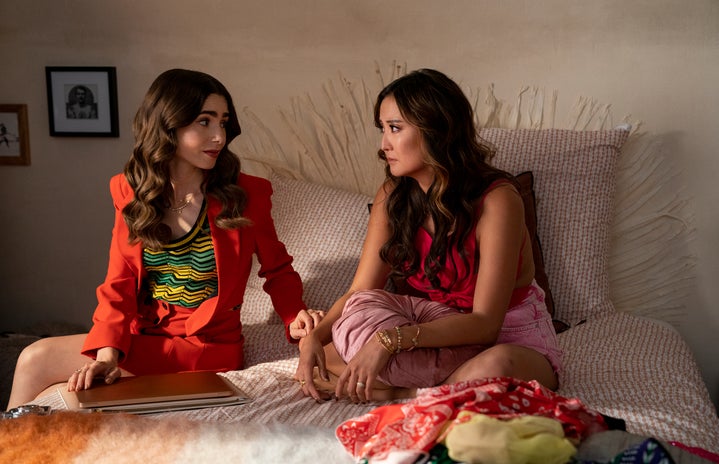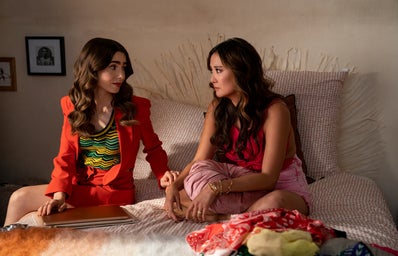Contrary to what male screenwriters may believe, women love to support one another
The friendships we form with other women throughout our lives are some of the most important and influential relationships we can have. We rely on them for emotional support, and they keep us grounded. Yet, in many films and television shows, the female friendships they feature are riddled with jealousy, backstabbing, resistance to opening up to one another, internalized misogyny and a general lack of support that refuses to reflect real life. Fortunately, some writers have seen the gap in relationship representation—specifically, the creators of Parks and Recreation (2009) and Ted Lasso (2020).
Parks and Recreation follows Leslie Knope, a passionate and intelligent member of Pawnee, Indiana’s parks department, working to improve the town she loves. The show begins with Leslie meeting her best friend, Ann Perkins, at a public forum meeting, where Ann asks that a pit on the lot next to her house be filled. Leslie, who is naive but ultimately well-meaning, decides to build a park on the lot, and the two women begin to spend time together.
Throughout the show, the friendship between Leslie and Ann remains its most important and central point; even as the two women have individual storylines of love and careers, their connection remains their priority. While the women have their share of arguments, these arguments generally revolve around concern for one another or utilize the characters’ already-established flaws. While some shows may resign themselves to creating external jealousy to fuel conflict between two women, the writers of Parks and Recreation fall back on the idea that Leslie and Ann will always go out of their way for the other when they can and use their character flaws to incite conflict.
One of Leslie and Ann’s biggest fights comes during the show’s third season, when they critique one another’s dating habits. At the time, Ann finds herself molding her personality to fit the guy she is dating and losing bits of herself in the process. Meanwhile, Leslie and Ben are both hiding their feelings for each other during the beginning of their relationship. However, Ann and Leslie’s fighting does not come from a place of deep issues; instead, both just want the other to find happiness. Leslie adores Ann, constantly showering her with compliments and nicknames like “Beautiful Tropical Fish” so she can own her personality and find strength in herself. Similarly, Ann sees Leslie struggling with her feelings and wants to push her to go after what she wants so she can be happy. While they have a massive drunken argument that frames the episode, their issues come from a place of concern and mutual respect—somewhat rare for female dynamics on film despite being common in real life.
Ann and Leslie constantly lift one another up outside of this episode as well, offering help in each other’s lives when they can, showing their love through gifts and quality time, and generally functioning as each other’s biggest fan.
Ted Lasso similarly features a friendship built on prioritizing the truth, spending time together and always being the first one to hype the other up: the friendship between Rebecca and Keeley.
Keeley admits that she was initially intimidated by Rebecca, but after Rebecca does her a favor, Keeley marches into her office, declaring that she is no longer scared and wants to reach out to Rebecca. Rebecca, who is emerging from a toxic marriage where she felt discarded, is visibly enamored with Keeley’s “girl’s girl” personality and her ability to make people smile. The two spark up a friendship, and Rebecca offers Keeley a job in marketing. At first, Keeley is hesitant to accept, since Rebecca offers it to her in the bathroom. Eventually, Rebecca replies, “Why not? Men give each other jobs in toilets all the time.” The rest of the show illustrates the two of them consistently seeking out one another at the office to spend time together, and they eventually fall into a dynamic where they finish each other’s sentences. Similar to Leslie and Ann, Rebecca and Keeley’s conflicts do not come from petty issues or betrayal, but from pushing one another to be the best version of themselves.
While female frenemy dynamics have their place on screen, many writers seem to see this as the default, failing to recognize what women get from their friendships in real life. Friendships like Leslie and Ann’s and Rebecca and Keeley’s represent those who would do anything for their best friend and the overwhelming love they hold for each other. Sometimes, your best friends are the loves of your life.


